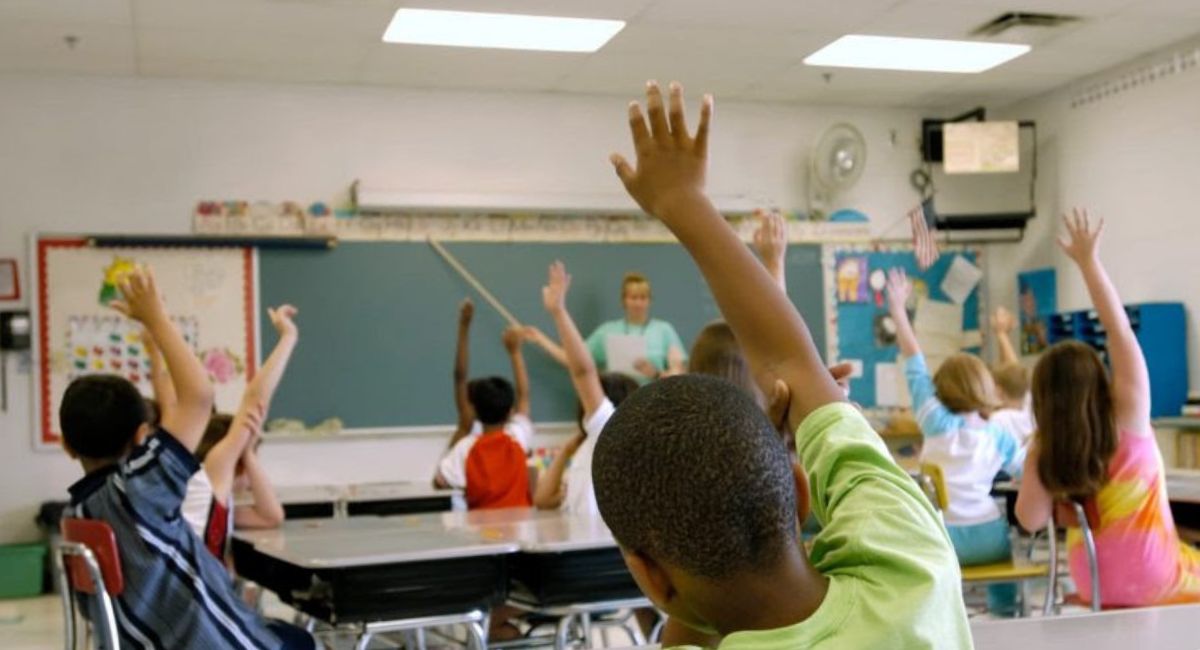Lea este artículo en español
An overwhelming majority of Florida adults, especially parents, disagree with their lawmakers about how kids should be educated, new data shows.
“Under the false pretext of ‘parental rights,’ students across the state are being subjected to political interference whereby Tallahassee politicians decide what books are appropriate, what subjects should be taught – or not – and more,” Margaret Huang, of the Southern Poverty Law Center, said at a press briefing announcing the findings.
“Far-right groups supported by a vocal minority of activists and urged on by opportunistic politicians have been mobilized to censor classroom discussion, eliminate inclusive education, and spread a false narrative that public schools are broken.”
So, the SPLC partnered with the nonpartisan independent research firm Ipsos in December to survey Floridian taxpayers’ attitudes about the state’s educational system.
It found that 92% of Floridian parents and 90% of the general adult population want public school curricula decided on by “education professionals” – credentialed teachers and administrators.
The study also found that 87% of Florida parents and 85% of adults overall support increased school funding. Also, 87% of parents and 81% of all adults surveyed said it is “very important to ensure all young people in Florida have a chance to get a good education” and 85% of parents and 83% of all those surveyed see K-12 education as a right.
“This deluge of attacks against public schools is only growing, and Florida is the main battleground,” Huang said. Since 2021, 44 states have introduced bills or taken steps to censor how race can be discussed in schools.
The new data, she said, demonstrates “just how disconnected” those behind the attacks are. “While claiming to give parents a voice and protect the interests of children, their real goal is to ensure that classrooms and curricula are again dominated by a white, CIS-gendered, Christian ideology.”
Florida is in the news this week as the state’s Supreme Court is set to rule on two proposed ballot initiatives, one that would enshrine the right to an abortion in the state and another on recreational marijuana. The ruling will provide another gauge of how aligned the state’s leadership is with the voting public. Polling shows both initiatives are popular among a majority of voters.
Also speaking at the briefing was Andrew Spar, of the Florida Education Association.
“What about the rights of kids to be excited about their education, to see themselves and be seen?” he asked.
“Voters want strong public schools with a plethora of Advanced Placement classes, robust music, art, P.E. and elective programs, and strong career and tech programs. That’s what voters want.
“They understand the importance of students seeing themselves in their learning and they want lawmakers to address the massive teacher and staff shortage, which is the worst we have ever seen in the state of Florida and has been that way for the last several years.”
For the third consecutive year, Spar said, his now-9th-grade daughter began the school year in Florida’s Volusia County without a full complement of teachers – this year, no English teacher. And teachers he knows are fleeing for more supportive states offering their kids better schooling.
The problems that exist in elementary schools, he said, extend into the state’s high schools and higher education institutions, too.
“Public education is not just a system of learning. It’s the cornerstone of democracy,” Laura Munoz, of Florida Student Power, said. “It unites us, provides equal opportunities, and shapes students’ understanding of the world around us, shaping our values and preparing us for the challenges that lie ahead.”
But “to become critical thinkers capable of navigating an increasingly complex world,” she said, requires “an education designed and made by educators, not by politicians, based on their expertise and knowledge, not political pandering.”
“Despite Floridians’ overwhelming support for public schools, state leaders’ pursuit of anti-education laws and policies have diverted millions of dollars from public schools, diminishing the quality of education students can expect to receive,” SPLC Action Fund Florida policy director Jonathan Webber said.
“We are already seeing the consequences of those decisions in how people vote and who they support for office. Floridians are determined to ensure all students have access to a quality free education without discrimination.”
“This is a valuable lesson about listening to teachers before you pass sweeping, controversial changes.”
The outcry over the leadership of former presidential hopeful Ron DeSantis, Florida’s governor, in enacting book bans and other policies was such that he has begun to disavow them, and groups such as Moms for Liberty, that argued against inclusive school policies, were defeated in school board elections.
Seeing that, the Florida Senate in February abandoned book bans and other bills targeting Black and LGBTQ+ communities.
“The research is extremely clear. Floridians support our public schools, and they want professional educators to lead on how to best educate our children.”
“Public education remains a cornerstone of our democracy,” Huang said. “Schools offer the opportunity to learn from our shared history in order to avoid repeating the mistakes of the past.
“They’re also mechanisms for educating voters and future voters about the values of a participatory democracy. It’s why the elected leaders of the Reconstruction era focused on building public education for all. They recognized the need to help everyone in our republic exercise their rights.”
“Florida needs state leaders who understand the importance of public schools and will work to support them. That means equitable and strong funding, high-quality resources, and well-paid educators and support staff who are appropriately trained to work with children from all walks of life. It is essential to create inclusive learning environments where all children can thrive.”




